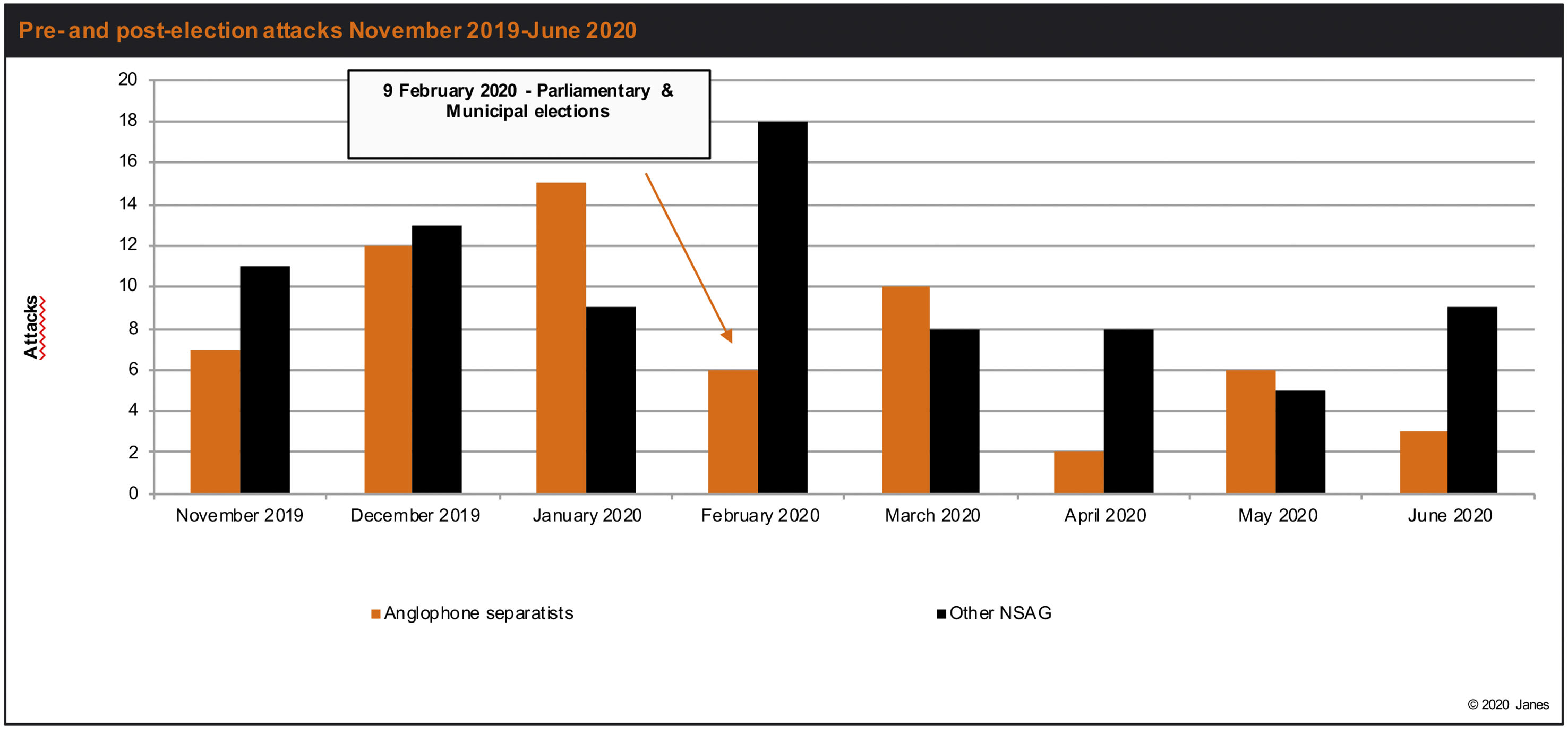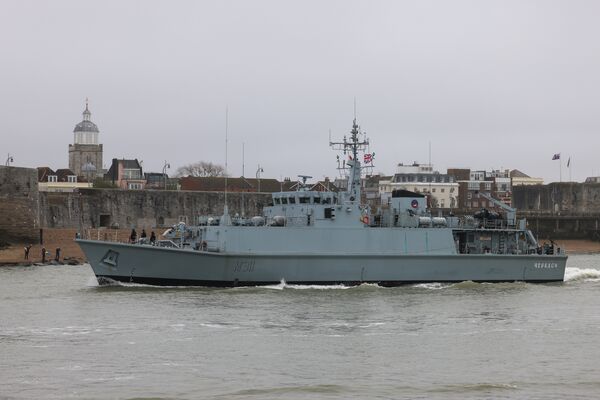- About
- Intara
- Capabilities
- Advisory
- Resources
- News
- Store
New peace negotiations highlight fragmented separatist movement and intransigent government in Anglophone Cameroon
10 July 2020
by Hilary Matfess
In early July, peace negotiations began between one of the Anglophone Cameroon separatist groups (led by incarcerated leader Sisiku Julius Ayuk Tabe) and representatives of the Cameroonian government. Although the ‘Anglophone question’ is a long-standing feature of Cameroonian politics, it has become particularly acute in recent years. What began as a series of peaceful protests in October 2016 demanding that the Cameroonian government abide by the constitution has since escalated into a brutal conflict between Anglophone separatists and the Cameroonian government. Anglophone speakers living in the Nord-Ouest and Sud-Ouest regions constitute less than one-fifth of the country’s population; the area is also a stronghold for the country’s main opposition party. According to a Crisis Group report published in 2017, the protesters’ initial demands included that the government respect their right to use Common Law and the English language to administer these regions and a stop to the “francophonisation” of the country’s legal system. A heavy-handed security response to a lawyers’ strike in the Nord-Ouest and Sud-Ouest regions resulted in the spread of demonstrations (geographically and among different interest groups) and the expansion of the demonstrators’ grievances. Cyclical violence, including physical oppression and legal persecution, eventually led to the unilaterally declared independence of the Ambazonia region on 1 October 2017 by the Southern Cameroons Ambazonia Consortium United Front (SCACUF).

USN secretary calls for increased immigration to augment US shipbuilding labour
24 April 2024
by Michael Fabey


US Secretary of the Navy Carlos Del Toro said the country needs more blue-collar workers to meet navy shipbuilding needs at yards like Newport News Shipbuilding, shown here. (Janes/Michael Fabey)
To address the shortage of workers needed to build the number of ships needed to meet US Navy (USN) fleet plans, the country should seek to bring in more legal immigrants from foreign shores, according to US Secretary of the Navy Carlos Del Toro.
While acknowledging the impact of Covid-related issues on USN shipbuilding schedules on 23 April during an event at the Stimson Center, Del Toro said, “The bigger problem is the lack of blue-collar workers.”
Del Toro called on US lawmakers to “increase the amount of legal immigration” and work visas for potential shipbuilding work to come into country, despite the political divisions preventing such bipartisanship.
“We need to open up the spigot on legal immigration and allow blue-collar works to come here,” he said.
He underscored the need for retraining the new workforce for shipyard trades needed to build USN ships.
Vietnam outlines intent to procure K9 howitzer
24 April 2024
by Kapil Kajal


The K9 SPH has a combat weight of 46.3 tonnes, a top road speed of 67 km/h, and an operational range of 360 km. (Hanwha Defense)
Vietnam's Ministry of Defence (MoD) has indicated that it is planning to procure the K9 self-propelled howitzer (SPH) – developed and produced by South Korea's Hanwha Aerospace – for the People's Army of Vietnam.
Vietnamese Vice-Minister of National Defence Hoang Xuan Chien expressed an intention to procure the K9 at the ‘11th Korea-Vietnam Defense Strategy Dialogue' held in Hanoi on 23 April, according to a press release issued by the South Korea's Ministry of National Defense (MND) one day later.
“Chien evaluated Korea's weapons systems and expressed his intention to expand defence industry co-operation, including the introduction of Korean weapon systems such as the K9 SPH [into the People's Army of Vietnam] and requested co-operation from the Korean government for this purpose,” the MND said.
In addition, the two sides agreed to strengthen co-operation in areas such as maritime security, cyber security, and logistics, the MND added.
Ukrainian ex-Royal Navy minehunters to be temporarily based in Portsmouth
19 April 2024
by Kate Tringham


Cherkasy, one of the Ukrainian Navy's two newly acquired ex-Royal Navy Sandown-class MCMVs, is pictured entering Portsmouth Harbour on 11 April ahead of a series of multinational naval exercises. (Crown copyright)
The Ukrainian Navy's two newly acquired ex-Royal Navy (RN) Sandown-class mine-countermeasures vessels (MCMVs) have been temporarily homeported at Portsmouth Naval Base, the RN has confirmed.
The two minehunters, Chernihiv (ex-HMS Grimsby ) and Cherkasy (ex-HMS Shoreham ), arrived at Portsmouth Naval Base on 11 April ahead of a series of multinational exercises.
Previously based in Scotland, the ships will operate from Portsmouth “for the foreseeable future”, the RN said. While stationed in Portsmouth, they will engage in exercises with the RN and the US Navy (USN) in UK waters, helping the Ukrainian Navy to adapt to NATO operations.
Chernihiv and Cherkasy, which were recommissioned into Ukrainian Navy service in July 2023, were donated by the UK to Ukraine as part of the Ukraine Naval Capabilities Enhancement Programme (UNCEP). Ahead of their transfer from the RN, they were overhauled by Babcock at its facilities in Rosyth, Scotland.
In early July, peace negotiations began between one of the Anglophone Cameroon separatist groups (le...
Latest Podcasts
Iran Israel analysis
In this podcast Janes analysts discuss the Iranian attacks on Israel on the 14 April. They highlight the military systems used by Iran and the performance and impact of these on Israel. They also discuss the implications of this attack goi...
Listen nowJanes Case Studies
Using Janes Intara to build a common intelligence picture: Russian build up on the Ukrainian border
View Case StudyNews Categories
 Security Details
Security Details